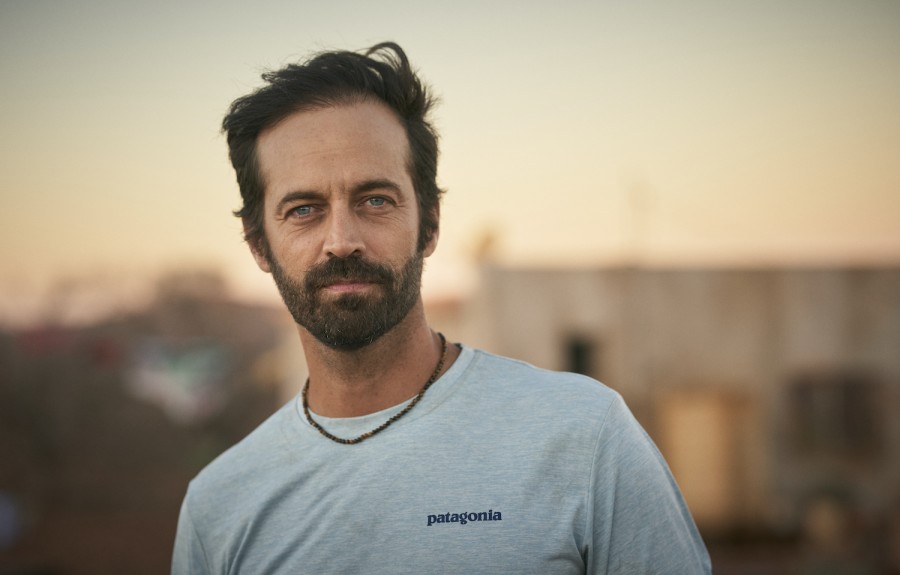Q&A: Benjamin Millepied on bringing a classic love story into the 21st century
The French choreographer spoke with WSN to talk about his love of the original “Carmen” opera, his directorial debut in its new film adaptation and what he hopes audiences will take away from his interpretation.
Benjamin Millepied on set. (Goalpost Pictures, Courtesy of Sony Pictures Classics.)
April 24, 2023
Born and raised in Bordeaux, France, Benjamin Millepied first started dancing at the age of 8 when his mother, a ballet dancer herself, became his first teacher. After spending his early adolescence at a conservatory in Lyon, and with a scholarship from the French Ministry, Millepied moved to New York City to study full time at the School of American Ballet under the mentorship of the legendary Jerome Robbins of “West Side Story.” Beyond dance, he has also been involved in film, most notably in “Black Swan” starring Natalie Portman, to whom he is now married.
In limited theatrical release as of April 21, “Carmen” is Millepied’s directorial debut, a passion project of his for many years. WSN sat down with Millepied to talk about bringing dance to the silver screen, casting Melissa Barerra (“Scream IV” and “In the Heights”) and Paul Mescal (“Aftersun”), and the art of collaboration.
This interview has been edited for length and clarity.
WSN: The original opera “Carmen” takes place in Seville, Spain, in 1820. What informed your decision to transfer the story to present-day America?
Millepied: I think it was important, first of all, to reinvent the story to celebrate this woman, Carmen, for her freedom, her fearlessness, her magical qualities, this integrity she has at all costs. To modernize it was also essential because I wanted audiences to relate to the story, so setting it in a current time helped with that connection.
The border and this journey the characters take to Los Angeles has to do with my love of California, and the fact that these issues were a part of my environment as an immigrant from France. It just made sense. It was really ironic, however, because we had to make the movie in Australia due to pandemic restrictions. You do all of the planning and make the perfect vision, but then realize you can’t do it at the exact location — but it all works out as Australia has landscapes that worked perfectly for what we had planned.
WSN: “Carmen” stands out for its symbolism and an extremely theatrical approach to storytelling. How did you use different filmmaking elements to support your unique vision?
Millepied: In my movie, I wanted Carmen to have these beautiful elements and freedom, but also have an opportunity to meet someone she can have a connection with and have this journey where he accompanies her through life and death, and they both get something very beautiful out of it. They recognize this kind of beauty in each other, as he sees her for who she is. These are two people coming from completely different backgrounds who should not be falling in love, considering the confrontation at the border where they met, but nevertheless, they do.
WSN: The film’s story is centered around Carmen and Aidan’s relationship with one another. How did you go about casting Melissa Barrera and Paul Mescal?
Millepied: I wanted a Mexican woman who could not only sing and dance and act, but also possessed so much courage and strength and fearlessness and mystery without being cliché. I looked through thousands of videos of so many talented actresses, and she was above the rest. She has such a natural and effortless energy that shines every time she sings and dances, and when I met with her and discussed the role of Carmen I was struck by her personal connection to the material and to who Carmen is as a human being.
Paul Mescal first appeared on my radar in 2020 with the premiere of “Normal People.” As Connell, you could see how he was not only a physical actor, but one who can get to the heart of a character’s internal struggles and misfortunes with a level of sensitivity that is needed. Although Paul needed to learn how to box and dance for the role of Aidan, when we first met, I saw in him a willingness to do whatever work needed to be done to fully embody the character. For both Paul and Melissa, the physical demands could have been a tricky hurdle, but they put in their all to the dance lessons and the boxing lessons, and it ended up being a success.
WSN: Seeing Tracy “The D.O.C.” Curry in the film was a pleasant surprise. How did his role come about?
Millepied: That was a brilliant idea to which [composer] Nicholas Britell gets all the credit for. I had said how I would love to have a hip-hop song in the film as a nod to the genre’s impact on Los Angeles’ cultural landscape. Brittell got into contact with Tracy through a mutual friend, and to our surprise, he was on board, despite not having recorded in two decades. In the end, The D.O.C. was the perfect person to symbolize the history of rap and hip-hop, which became a perfect gift for us.
WSN: Your background in dance is extensive, as shown with your experience with the New York City Ballet, the L.A. Dance Project and the Paris Opera Ballet. Although you’ve worked on films before, what surprised you most about being in the director’s chair?
Millepied: I think what’s most surprising was how wonderful the process of writing a story, having a vision, and then gathering the right people to work with. It’s like collecting your Seven Samurai to come with you to battle — the people you think are exactly right to embody and enrich that project. It’s truly amazing to then set them free and give you as much of their talent as possible and to be carried by the collaborative energy, and the shared goal of expressing beauty.
Contact Madeline Kane at [email protected].





























































































































































